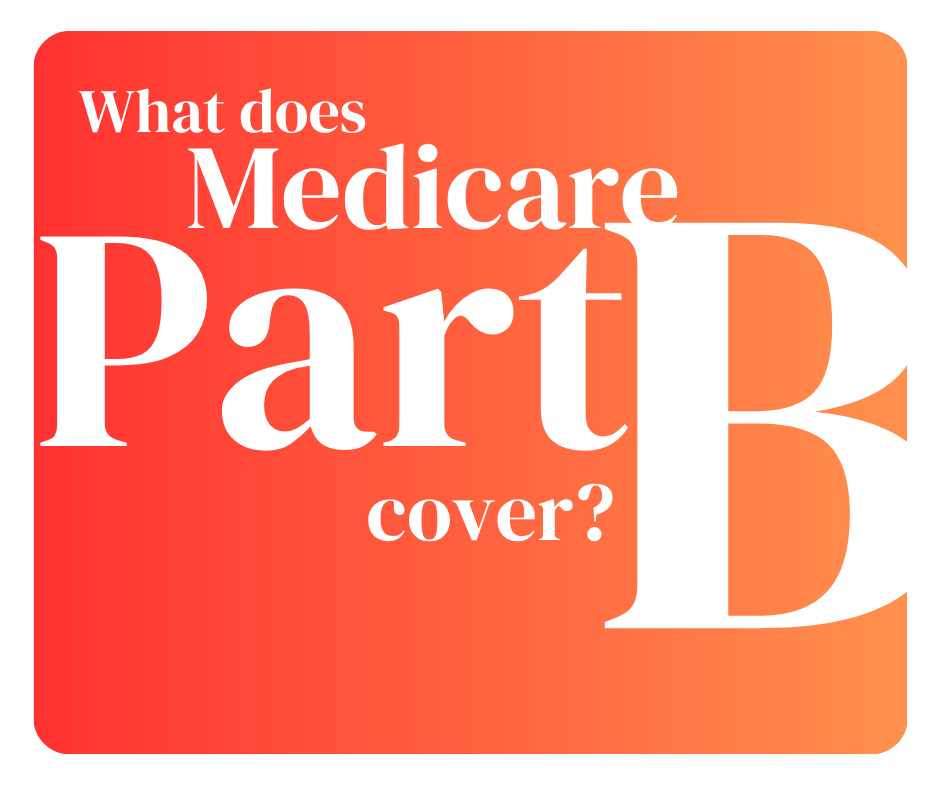
What is Medicare Part B?
Medicare Part B is the second half of Original Medicare, along with Medicare Part A. Whereas Medicare Part A covers medically necessary inpatient care, Medicare Part B covers outpatient care needed to diagnose or treat a medical condition. What does that mean in everyday terms? It generally refers to care and treatment you could receive from a doctor. It includes many preventive services such as screenings, diagnostic tests, or certain vaccines. Let’s look at some specifics.
What Services Are Covered Under Medicare Part B?
- Ambulance services (including life flight if it is medically necessary for your location)
- Clinical research
- Durable medical equipment (DME)
- Certain outpatient prescription drugs
- Mental health and substance abuse disorder treatment
- Oxygen equipment and accessories
Preventive Screenings
Including but not limited to:
- Bone Mass Measurements (generally once every 2 years)
- Cardiovascular Disease Screenings (once every 5 years)
- Colonoscopies – screenings (once every 2 years for high risk, and once every 10 years for low risk)
- Mammograms (generally once a year after age 40)
- Prostate Cancer Screenings (generally once a year after age 50)
- Yearly Wellness Visits
Durable Medical Equipment Needs
Including but not limited to:
- CPAP equipment
- Hospital beds
- Nebulizers & nebulizer medication
- Oxygen equipment & accessories
- Walkers, wheelchairs, and scooters
Vaccinations
In general, vaccinations covered by Medicare Part B come at no cost to you. These include:
- COVID-19 Vaccine
- Flu Vaccines
- Hepatitis B shots under certain conditions
- Pneumococcal shots
Other vaccines that are recommended by the CDC’s Advisory Committee on Immunization Practices (ACIP) are included with a Medicare Part D prescription drug plan. These include shots for RSV, whooping cough, shingles, Tdap, and more. You will not have an out-of-pocket cost for these recommended vaccinations.
Medicare Part B Limitations
As with all Medicare, there are rules and limitations to the services provided. First, be sure that your doctor accepts Original Medicare. If you are on an Advantage Plan, you may have a network to work within. There may be copays or coinsurance that you are responsible for to receive these services. Talk to your doctor first to know what your portion will be. Typically only certain prescriptions are covered. Also consult this list at Medicare.gov to see if a particular service is covered under Original Medicare.
In our next post we will talk about what Original Medicare does NOT cover.